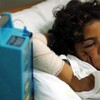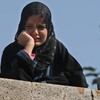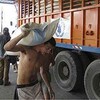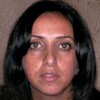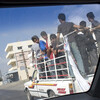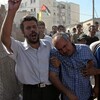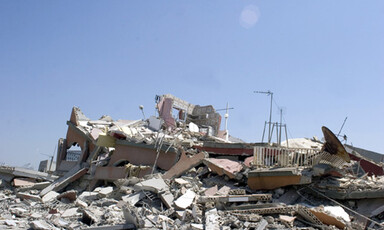
"There was a massacre at Qana"
Beirut 2 August 2006
Coming into consciousness of, or bearing witness to, a massacre only a few kilometers removed from one’s being (or home), feels very much like the experience of being in the proximity of a very powerful explosion only at an extremely, extremely slowed motion. Taking stock of the information on time, place, and the toll of victims, watching televised transmission of rescue workers piling a kindergarden in rigor mortis, is identical to the astounding sensation of the air being sucked from all around, that typically precedes the explosion. And at some point, it all sinks in … Read more about "There was a massacre at Qana"

